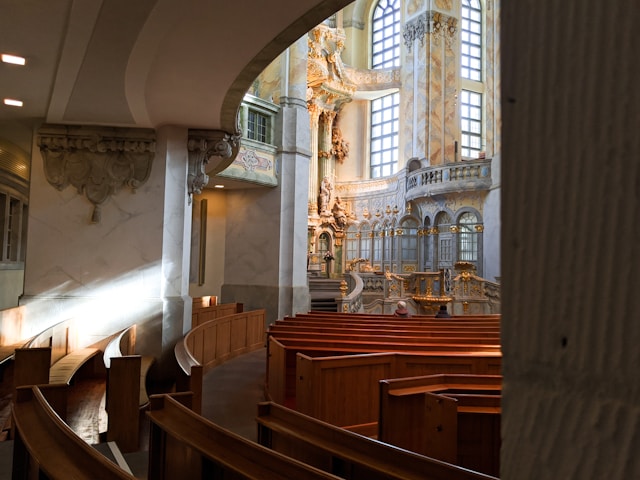Your cart is currently empty!
Discover the Enchanting History and Significance of the Church of the Holy Spirit

A Journey Through History and Spirituality
Nestled amidst the heart of vibrant cities or tranquil countryside, the Church of the Holy Spirit has stood as a beacon of faith for centuries. Its captivating history and profound significance have left an enduring legacy on Christian worship and spirituality. Let us embark on a journey to explore the captivating tapestry of this sacred institution.
Origins and Early Beliefs
The concept of the Holy Spirit holds deep roots in Christian theology, dating back to the teachings of Jesus Christ. According to biblical accounts, the Holy Spirit descended upon the disciples at Pentecost, empowering them to spread the Gospel and perform miracles. This outpouring of the Holy Spirit marked the birth of the Christian Church.
Early Christian communities considered the Holy Spirit to be the third person of the Trinity, alongside God the Father and Christ the Son. The Spirit was believed to guide and inspire the faithful, providing divine strength and wisdom.
The Rise of Holy Spirit Churches
As Christianity spread throughout the Roman Empire, churches dedicated specifically to the Holy Spirit began to emerge. One of the earliest known examples was the Church of the Holy Spirit in Rome, built in the 5th century. This church served as a focal point for pilgrims and worshippers seeking spiritual renewal.
Over time, churches of the Holy Spirit gained prominence in various regions of Europe. They became centers of learning, religious education, and community outreach. Many of these churches developed unique traditions and practices related to the veneration of the Holy Spirit.
Architectural Marvels and Artistic Treasures
The Church of the Holy Spirit often showcased exceptional architectural craftsmanship and artistic splendor. The following are some notable examples:
Church of the Holy Spirit, Krakow, Poland
This Gothic masterpiece features a soaring nave, intricate stained glass windows, and elaborate altarpieces. Its construction spanned several centuries, showcasing the evolving architectural styles of the period.
Church of the Holy Spirit, Heidelberg, Germany
Renowned for its Baroque opulence, this church boasts a grand interior adorned with opulent frescoes, gilded carvings, and a majestic organ.
Church of the Holy Spirit, Goa, India
A testament to the Portuguese colonial legacy in India, this church exhibits a fusion of European and Indian architectural elements. Its interiors are adorned with colorful tiles and intricate woodwork.
Liturgy and Devotional Practices
Churches of the Holy Spirit developed distinctive liturgical practices and devotional traditions. Mass often included special hymns, prayers, and readings that honored the Holy Spirit.
Veneration of the Holy Spirit
Throughout history, the Holy Spirit has been venerated as a powerful intercessor and source of grace. Many churches have instituted special devotions, such as novenas and litanies, dedicated to invoking the Spirit’s presence.
Feast of Pentecost
The Church of the Holy Spirit celebrates the Feast of Pentecost annually, commemorating the descent of the Holy Spirit upon the apostles. This festival is often marked by special services, processions, and community gatherings.
Modern-Day Significance
In contemporary Christianity, the Church of the Holy Spirit continues to play a vital role:
Charismatic and Pentecostal Movements
Many charismatic and Pentecostal churches emphasize the power of the Holy Spirit in their worship and practices. They believe in spiritual gifts, such as speaking in tongues and prophecy, as manifestations of the Spirit’s presence.
Renewal and Transformation
The Holy Spirit is often associated with hope, renewal, and transformation. Churches of the Holy Spirit serve as beacons of spiritual growth and community engagement, working to bring about positive change in their congregations and the wider world.
Ecumenical Dialogue
The Church of the Holy Spirit provides a common ground for ecumenical dialogue among different Christian denominations. By focusing on the shared belief in the Holy Spirit, churches can bridge theological differences and promote unity.
Conclusion
The Church of the Holy Spirit stands as a testament to the enduring power of faith and the transformative nature of the Holy Spirit. From its ancient origins to its modern-day significance, this sacred institution continues to inspire, guide, and connect believers across generations. Whether you seek spiritual renewal, artistic splendor, or a deeper understanding of Christian history, the Church of the Holy Spirit awaits you with open arms.